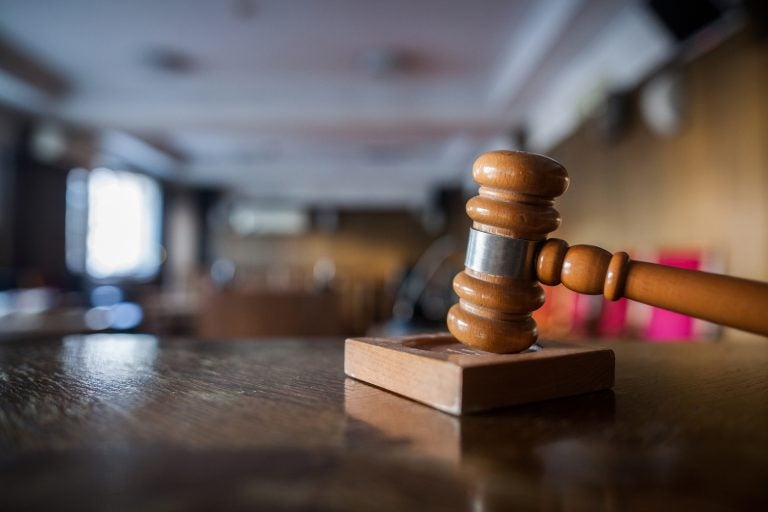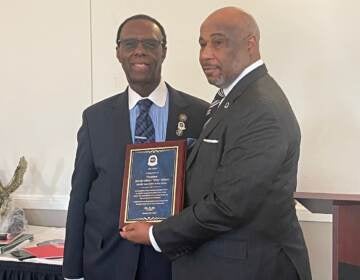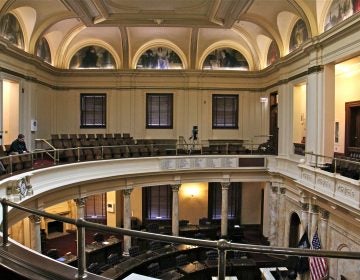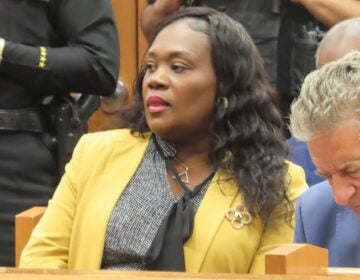Lack of judges will delay civil matters in 6 N.J. counties, including 3 in South Jersey
N.J. Supreme Court Justice Stuart Rabner announced that due to the number of vacancies on the bench, six counties will suspend civil trials.

(Alexandru Nika/BigStock)
In less than two weeks, civil and matrimonial trials in six New Jersey counties will be suspended. Supreme Court Chief Justice Stuart Rabner said Tuesday that there are not enough judges in those areas to go around.
“At this time, there are 69 vacancies throughout the trial courts — more than one out of every six positions statewide,” he said in a statement. “That imposes heightened responsibilities on sitting judges who handle thousands of proceedings and motions each month.”
Civil and matrimonial trials are cases involving wages, accident claims, divorce, and child custody arrangements, as well as child support.
Jeralyn Lawrence, president of the New Jersey State Bar Association, said “everyone’s life is on hold” because their cases won’t have a ruling because the courts have been effectively shut down.
“The trickle down effect is enormous,” she said. “You have victims of domestic violence that may not have their day in court because judges are in triage mode and may be pulled to criminal cases.”
The trial suspensions, effective Tues., Feb. 21, will happen in two multi-county Superior Court vicinages. Vicinage 13 — comprising Hunterdon, Somerset, and Warren counties — has five judicial vacancies out of 20 positions. In Vicinage 15 — comprising Cumberland, Gloucester, and Salem counties — there are nine vacancies out of 28 judgeships.
“In light of the high percentage of vacancies in [the vicinages], and the particular challenges multi-county vicinages face, there are simply not enough judges at this time to conduct civil and matrimonial trials in either vicinage,” Rabner said.
The suspension of trials will have a “significant impact” on litigants “across the board,” according to Rocco Cipparone, an attorney based in Gloucester County. He said civil and matrimonial cases are already backlogged not only due to the judicial shortages, but the volume of litigation that exists.
“[The suspensions are] really going to significantly impact and delay their ability to recover funds, for example, in civil cases that are necessary to either their living or to make up for lost economic opportunity or lost wages,” he said.
Cipparone adds that the vacancies overall have made it difficult for him to move cases to fruition on behalf of his clients, so they can plan their lives according to court outcomes.
“On the criminal side it’s been significant. And on the civil and matrimonial side, the same thing,” he said. “I’ve got a lot of personal injury cases that move much more slowly.”
Rabner has been “raising the white flag for months,” according to Lawrence. There were 75 judicial vacancies when Rabner spoke at the association’s conference last year. Nine months later, she said not much has happened, adding that the number of vacancies will go up over the next couple of months due to upcoming retirements.
“The governor and the Legislature have managed to cripple our judiciary,” she said. “They’ve managed to trample on litigants’ rights and the ability to access justice by way of closing the courthouse to six counties across our state.”
Lawrence renewed her call for the governor and the Senate to spend a day to fill vacancies, something that should happen “today, this afternoon, yesterday. Immediately, if not sooner.” She said there are plenty of qualified candidates waiting to serve, but the only issue is that the governor and the legislature can’t figure out who to put on the bench.
“I know there’s a lot of important issues facing New Jerseyans, but this has to be very high on their list,” she said, adding that Murphy and the Legislature “need to sit down, communicate, cooperate, and compromise on their candidates.”
A spokeswoman for Gov. Phil Murphy said he “has remained committed to ensuring vacancies in New Jersey’s courts are filled by highly qualified individuals who demonstrate unwavering integrity and dedication to service, while reflecting the diversity of the New Jerseyans that they are sworn to serve.”
“Recognizing the extraordinary challenges that have been exacerbated by the pandemic, the Governor is eager to see the remaining 17 pending Superior Court nominations he put forth receive Senate confirmation and will continue to nominate new, highly qualified candidates this year,” said Murphy’s spokeswoman Natalie Hamilton.
She added that 101 judges have been nominated and confirmed since Murphy took office in 2018, including 45 last year. Lawrence, while appreciative of the 45 confirmations, called the response from the governor’s office “outrageous,” and that the number of confirmations is “woefully insufficient.”
“That number should be 114,” she said, adding that the administration’s math is “way off,” and added, “We stand at 69 vacancies with 23 pending retirements. So that’s 92 vacancies in the not too distant future.”
Cipparone hopes over the next couple of months the nominations that are pending get moved through “much more quickly” and new people are nominated swiftly.
He also thinks a proposal to raise the mandatory retirement age of judges to 75 could also help with reducing the caseload of judges. Cipparone cites his recent appearance before a 92-year-old federal judge “who was as sharp as [he was] 30 years ago” when he first appeared before him as a federal prosecutor.
Unlike state judges, federal judges do not face mandatory retirement requirements.
“He’s willing to come in and do that, and it gives him something to do, and he’s sharp and he’s good at it,” Cipparone said. “There obviously have to be checks and balances if people get to a point where they’re not confident as judges.”
WHYY is your source for fact-based, in-depth journalism and information. As a nonprofit organization, we rely on financial support from readers like you. Please give today.







